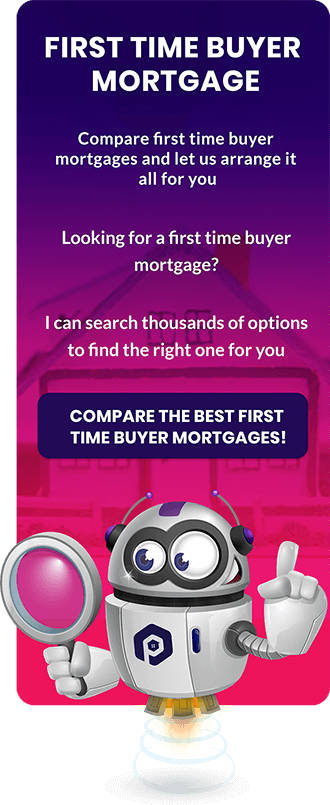
While real estate agents spend a considerable amount of their time outside of the office, they must still be available for clients’ inquiries at all times. Nowadays, you can find information about everything on the internet.
After the recent global health crisis, those interested in selling, buying, or renting real estate in the US expect to find information about the properties they are interested in and communicate with their realtor online through virtual means.
Not only that, but with the rise of large independent listing portals, the competition in this field has gotten even more fierce.
Fortunately, there are a lot of digital tools available that cater to all parties involved in the real estate market. These technological innovations allow consumers to access listing information their broker has provided and for realtors to stay connected with all parties, including their office for added productivity.
Read on to learn more about the technology that allows US real estate agents to thrive in this competitive environment.
Transaction Management Software
Real estate transaction management software is the first tool a realtor needs to thrive in the digital era.
This software records every transaction and helps you manage them, effectively helping you to avoid unpleasant situations like missing deadlines or appointments.
Most of the software will send you a reminder about your transactions via email. If you aren’t sure which client the reminder is in reference to, you can simply sign in, following the link you receive in that email, and access all the additional information on one page.
MLS
MLS, or Multiple Listing Services, are tools designed to connect listing brokers with brokers who work with buyers. Realtors don’t have to waste time looking up suitable brokers from the other side, making connections with them on different channels, or sending information about the individual listings.
The databases created with the MLS tools are established and maintained by real estate professionals who want their clients to sell or buy property without delay.
It’s important to note that due to property owners’ privacy protections that are in place, the data on the MLS is not publicly available.
However, the realtors running the services can provide the information free of charge when requested by prospective clients.
Internet Listing Integration
Software and tools that integrate all listings, guides on how to search for active listings, and realtor contacts into one cohesive cloud of information, have revolutionized the real estate market.
Often referred to under the common name IDX, these tools allow realtors to provide their clients with all of the data associated with a property, including MLS listings.
Showcase IDX’s guide on IDX in the US can help you learn more about how these tools work. While some realtors can find IDX confusing, after taking the time to understand these systems, they can make your work infinitely more productive.
You won’t have to refer clients to a third-party MLS listing service anymore, saving you and your clients’ money and time.
Email Marketing Tool
Emails are a great way to build your client list and engage with prospective and current customers. There are several tools that can help you create an email campaign for your target customer group.
They can also set up an automated schedule to keep your subscribers up to date with the newest information on the real estate market.
Most of the tools will even design the layout for you. You only need to worry about the best content that’ll help you remain connected with clients, suppliers, and other collaborators.
Websites
Despite the different tools agents can rely on, the one that ensures they are able to bring in clients is a professional website.
You may advertise yourself on all the other channels – but your clients will want to see a representation of your services in one cohesive package.
Make sure your website highlights everything potential consumers could be interested in about your services. Above all, make sure your site is accessible and that it functions smoothly on all mobile devices.

Social Media Management Tools
Having an all-inclusive, responsive and reliable website is a must for every real estate agent, but it often isn’t enough to attract potential clients.
This is due to the fact that the first places people go to when looking for a trusted guide for buying, selling, or renting property are social media platforms.
Agents can use their social media presence to build trust and engagement with users, eventually converting them into paying clients.
As a realtor, you can have profiles on several platforms – and you don’t even have to worry about managing them one by one.
There are some wonderful services out there that link all your profiles together. All you need to do is insert the message you want your followers to see, click the send button, and the tool will share it across all of your channels.
The social media management tools also gather the analytical data you need to see how successful your social media campaigns are based on user responsiveness.
Cloud Services
Cloud services are another option for facilitating communication and document sharing. Clouds are essentially databases where realtors can store and share all of the data they have collected about each property, including the digitized version of the physical documents.
There are a number of apps that offer different cloud-based storage services, including creating a folder of shared documents on every device on which it is downloaded.
This way, realtors can make the changes they’ve discussed with their clients in a particular file, the clients can see it being done by accessing the same document on their device, and even add their comments to it.
Digital Maps
Map applications are useful for both realtors and their clients. They allow you to set up a time-efficient schedule based on the locations you need to visit on any given day.
You can also send the information to prospective buyers, helping them locate the property they are interested in much faster.
Some map tools will allow you to include aerial photography in the information you are sending to the client so they can get a look at the property as well.
Virtual Tours and Staging
Clients find it more convenient to check out properties without actually visiting them. For buyers who can’t or won’t access the property but would like to see how it looks from the inside, you can provide a virtual tour of the listing.
There are different virtual tour services, and some even include staging. This means that a person goes to the property – and after placing a few strategically positioned decorations to make the place more inviting – takes videos and photos of it.
Or, you can also do the staging and filming yourself and simply send the footage to your clients.
Rating Apps
Rating apps are yet another type of tool that helps realtors be more efficient in providing the necessary information to their customers.
The most popular rating apps allow you to put in the key features about the properties, and the clients can rate these.
After collecting clients’ ratings for each feature, the application scores the property – giving the realtor an indication of whether it fits their customers’ needs.
Some of the information you can put in these apps include the location and the nearest emergency services, schools, interior designers, and restaurants, – including customer ratings of the listed establishments and services as well.
Document Scanner Apps
Nowadays, you don’t even have to worry about sending copies of physical documents to your clients.
In fact, you don’t even need a printer or scanner to send or obtain physical copies because there are mobile apps for it.
You simply need to download the scanner app on your phone or tablet and open it to take a picture of your document. After detecting the photograph, the app automatically converts it into a PDF document.
Furthermore, this will save you both time and resources as digital files are much easier to store than hard copies.
QR Codes
Due to their ability to store a large amount of data, QR codes can also serve as a great tool for sharing real estate-related information.
They are called quick response codes because anytime someone scans a QR with their smartphone, it sends them to the website linked to it.
The realtor’s website, property listings, information, email addresses, phone numbers, business cards, social media profiles, and laws regulating the real estate industry can all be linked to QR codes.
This way, real estate agents can ensure their clients receive the information they require in just a few simple steps.

Needless to say, a reputable real estate agent should never neglect having a technological advantage. Unlike a couple of years back when most interactions in the real estate business were concluded either in person or through emails, in today’s world, you are competing against every other real estate agent in the US.
You need to provide results and respond to clients’ inquiries fast, and you need digital tools to do that. They are designed to expand your abilities, allow you to multitask, get things done more efficiently – and, through this, compete even with the large listing portals.
MLS, map, and document sharing apps will ensure you can provide all the data your clients require.
For agents who want to gain an edge over their competition, there are also tools that provide services such as virtual tours or additional information about the environment the property is located in.
In addition to utilizing technological tools, agents must establish a responsive website and social media presence. This allows them to increase their visibility to potential customers while maintaining contact with the old ones.







